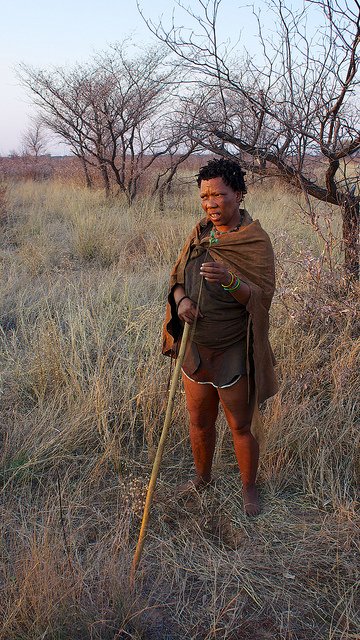By Troy Onyango
- Title: Little Suns
- Author: Zakes Mda
- Publisher: Umuzi
- Number of pages: 269
- Year of publication: 2015
- Category: Fiction
‘There’s a new sun every day. It rises in the east and crawls across the sky until it hides itself behind those mountains in the west’ – Malangana
History and love gel incredibly in Zakes Mda’s latest novel, Little Suns. It is an extraordinary tale of love between Malangana (literally translates as ‘Little Suns’) and Mthwakazi. Malangana is an amaMpondomise man who apart from grooming the king’s horse is also the king’s translator and adviser. He is the king’s half-brother from a smaller house. Mthwakazi is a woman from the abaThwa community who serves as a nurse to the queen. Zakes Mda narrates the story of a love that is gained and lost in a rather pointless war, like all wars, over the span of more than twenty years (1880–1904).
The novel opens with an old and beaten Malangana, limping on his crutches, searching for his Mthwakazi by following her aura. Although he meets a myriad of challenges at the outset, he remains relentless in his search for the woman he fell in love with twenty years before. The opening of the second chapter transports the reader back twenty-three years, and we get to meet a young, energetic and curious Malangana who is also bitter with the world and his brother, the king, for letting him be whipped and imprisoned by the cruel and unforgiving colonial magistrate, Hamilton Hope. However, the Bushwoman and diviner, Mthwakazi, offers Malangana a much-needed distraction, and for a while his love for her quells the bitterness he holds in his heart.
The story, however, tilts when Hamilton Hope demands that the king lead his men against the Basotho chief, whom he accuses of being a rebel for refusing to pay taxes to the queen of England. The prospect of attacking a fellow African, and a chief at that, does not appeal to the king who is even in mourning for his wife and is not supposed to wield weapons or go to war according to the customs of the amaMpondomise. Hamilton Hope’s insistence leads the king and his advisers, without Malangana’s involvement, to hatch a plan to kill Hamilton Hope. One of the king’s advisers kills Hamilton Hope, and the people rejoice. Malangana, still seething with rage, also takes the opportunity to ‘kill’ an already dead Hamilton Hope.
Gcazimbane, the king’s horse, is fond of Malangana in a way that makes the horse a character in its own right. It is through Malangana’s relationship with Gcazimbane that we discover Malangana’s devotion to life, despite his monomaniacal desire to kill Hamilton Hope in vengeance. This devotion to Gcazimbane later haunts him, when he starts to neigh like a horse, leading the people he meets make fun of him. The thought of having eaten the meat from Gcazimbane, albeit unknowingly, is one that gives him nightmares and surfaces when he is upset.
The retaliatory attacks that follow the murder of Hamilton Hope are what set the tone for the second half of the novel, and here we learn of the betrayals that enabled the British colonials subdue the Africans. This has had devastating repercussions that reverberate through the centuries and laid the foundation of the struggle for independence and democracy in South Africa.
The author, with his steady prose and trademark style, switches seamlessly between the periods before the war, during the war (named the War of Hope) and the period after the war. Mda narrates the events leading up to the War of Hope in poignant prose that breathes. He also aptly describes both the action and the adverse effects of the war. His simple style is one that makes the story easy to follow. The flashback employed in Little Suns draws the reader back to a period that stretches all the way to the 1500s. A recital of the genealogy and the acts of valour that make the names in that genealogy memorable enables the reader hold on to the history of the particular place and travel across the generations of heroism.
One of the strong points of this book is the research evident in the writing. This especially is to be appreciated in how the fictional characters are humanised and interwoven into an actual, historical society where their interactions with actual figures in history are brought out in a masterful way. Mda, in his writing, borrows heavily from the oral literature passed down from one generation to another and uses texts written by researchers and academics to prop the material at hand. This gives the reader the confidence of an accurate representation of historical events.
In her debut novel, Homegoing, the Ghanaian author Yaa Gyasi asserts that ‘We believe the one who has the power. He is the one who gets to write the story. So when you study history, you must always ask yourself, “Whose story am I missing? Whose voice was suppressed so that this voice could come forth?” Once you have figured that out, you must find that story too. From there, you begin to get a clearer, yet still imperfect, picture’. In this light, Zakes Mda’s Little Suns brings to the surface the story of a colonial South Africa that we have been missing, and it is perfect.
Photograph: ‘San Bushwoman’ by Mario Micklisch
Comments should be sent to comments@wawabookreview.com. Please use the appropriate review title in the email subject line.

